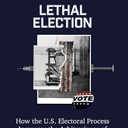After decades of maintaining a position that the government should have the legal right to impose capital punishment, the Chicago Tribune is now calling for abolition of the death penalty. Noting concerns about innocence, the arbitrary nature of the punishment, and the public’s shift away from the death penalty, the Tribune announced on March 25 that, “The evidence of mistakes, the evidence of arbitrary decisions, the sobering knowledge that government can’t provide certainty that the innocent will not be put to death – all that prompts this call for an end to capital punishment. It is time to stop killing in the people’s name.”
The entire editorial follows:
One of the core tenets of this newspaper since its founding has been that the extraordinary power of government must be wielded carefully and sparingly – particularly when that power weighs on the life and liberty of citizens.
It has, as well, long been the position of this editorial page that the government should have the legal right to impose capital punishment – the death penalty.
An editorial in 1869 stated: “Imprisonment as a penalty for capital crime has lost all its preventative value.” A Tribune editorial in 1952 called the death penalty “the most powerful deterrent to other criminals.” In 1976 this page said, “The danger of executing an innocent person is often cited, but we think unjustifiably.”
That last sentence sounds chilling today, in light of evidence in recent years of scores of cases in which government has wrongfully convicted defendants and sentenced them to death. The evidence of recent years argues that it is necessary to curb the government’s power. It is time to abolish the death penalty.
— - -
We have learned much, particularly with advances in DNA technology, about the criminal justice system’s capacity to make terrible mistakes. These revelations – many stemming from investigations by this newspaper – shake the foundation of support for capital punishment.
Who gets a sentence of life and who gets death is often a matter of random luck, of politics, of geography, even a matter of racism. Mistakes can occur at every level of the process.
Consider:
— Timothy McVeigh was executed in 2001 for the deaths of 168 people in the Murrah Federal Building bombing in Oklahoma City. Zacarias Moussaoui was sentenced to life in prison for his role in the Sept. 11 terrorist attacks, which took more than 3,000 lives.
— The Green River Killer, Gary Ridgway, confessed to murdering at least 48 women – he may have been the most prolific serial killer in U.S. history. But he made a plea agreement with prosecutors in Washington state that spared his life. Two years earlier, jurors in Washington sentenced a man to death for the murder of one woman during a robbery.
— There is ample evidence that killers are far more likely to land on Death Row if their victims are white than if they are black or Hispanic.
— You are 10 times more likely to get a death sentence in DuPage County than if you cross the border into Cook County.
The system is arbitrary, and the system just plain gets it wrong. In the three decades since the death penalty was reinstated in the U.S., more than 120 people have been released from Death Row after evidence was presented that undermined the case against them. In that time Illinois has executed 12 people – and freed 18 from Death Row.
This newspaper has done groundbreaking reporting on cases that suggest innocent people have been executed.
Cameron Todd Willingham was put to death in Texas in 1994 for the arson murders of his three daughters. Willingham claimed he was innocent, and now several arson experts believe the case against him was built on scientifically invalid evidence. The fire that killed Willingham’s children may have been an accident.
Carlos De Luna was executed in Texas in 1989 for the murder of a gas station clerk, though no forensic evidence linked him to the crime. Now evidence points to another man, Carlos Hernandez, who bragged to relatives and friends that De Luna was convicted for a murder Hernandez committed.
Even when the government convicts the right person, it can horribly botch the punishment. In December, it took Florida authorities 34 minutes to end the life of Angel Nieves Diaz because a poorly trained executioner incorrectly inserted a needle into his arm. The blunder prompted then-Gov. Jeb Bush to halt executions until the state improved its lethal injection procedures.
— - -
Public support for capital punishment has generally been strong over the years. Yet there’s evidence that the thinking of many people is changing. In a May 2006 poll, two-thirds of Americans said they supported capital punishment. But there was a significant shift when they were asked what was the best penalty for murder. On that question, 47 percent chose the death penalty and 48 percent chose life in prison without possibility of parole.
The most compelling evidence of a shift in public sentiment is that the number of death sentences handed out by judges and juries has plunged. There were 315 death sentences in 1995, but just 128 in 2005 and 102 in 2006. The number of executions has dropped nearly in half in the last eight years.
Society’s standards of justice and punishment continue to evolve. In the early 1900s, states began to substitute the electric chair as a more humane method of execution than the gallows. In the 1980s, lethal injection began to replace the electric chair and firing squads. Now lethal injection is coming under more scrutiny as evidence grows that it subjects the condemned to a great deal of pain. Eleven states have halted executions while they examine their lethal injection procedures.
In the last five years, the U.S. Supreme Court has ruled that it is unconstitutional to execute juveniles and the mentally retarded.
New Jersey placed a moratorium on executions in 2005, in part because of legislators’ concerns about irreversible mistakes. A special commission in New Jersey has recommended abolishing the death penalty and replacing it with life imprisonment without possibility of parole. The commission cited, among other reasons, the high cost of prosecuting and carrying out the sentence in a capital case. That far exceeds the cost of trying a defendant and keeping him locked up for life.
— - -
Illinois has been the focal point for the examination of the failings of the capital punishment system. Former Gov. George Ryan imposed a moratorium on capital punishment in 2000, and Gov. Rod Blagojevich has sustained it. In the wake of revelations about how many people have been wrongfully convicted in Illinois, the state has made efforts to reform its criminal justice system.
In 2001 the Illinois Supreme Court established a Capital Litigation Trial Bar, which set minimum standards for attorneys representing capital defendants and required judges to get more training. The legislature passed a package of capital punishment fixes, including an important measure to require that police interrogations of homicide suspects be recorded.
This page pushed very hard for those reforms, and they have addressed some problems, but not all. Flaws remain.
Little has been done to guard against situations in which witnesses to a murder mistakenly identify an innocent person as the suspect, the single greatest source of wrongful convictions. No mechanism exists in Illinois to review what went wrong in cases of wrongful convictions, or to ensure that the death penalty is evenly applied across geographic boundaries. Efforts to address mistakes or bad actors at forensic labs have gone nowhere. We don’t see the prospect that there are better fixes for these gaps. Meanwhile, the list of crimes eligible for the death penalty has been expanded.
When it acknowledged widespread problems in its system of capital punishment, Illinois prompted a nationwide soul-searching. Illinois can now lead the country by recognizing those errors will not be sufficiently addressed, that the state cannot have moral certainty that new injustices won’t be heaped atop old ones.
Research on the deterrent effect of capital punishment has produced conflicting results over the years. But with the small number of instances – less than one-half of one percent of all murderers are executed – it seems that if capital punishment ever did serve to stop violence, it does not do so now.
Illinois already has the necessary alternative to death: life without possibility of parole. It is not a comfortable existence. It can mean life in a Supermax prison, where inmates spend 23 hours a day alone in 7‑by-12-foot cells.
The evidence of mistakes, the evidence of arbitrary decisions, the sobering knowledge that government can’t provide certainty that the innocent will not be put to death – all that prompts this call for an end to capital punishment. It is time to stop killing in the people’s name.
(Chicago Tribune, March 25, 2007). See Editorials, Innocence, Arbitrariness, and DPIC’s 2006 Year End Report.



